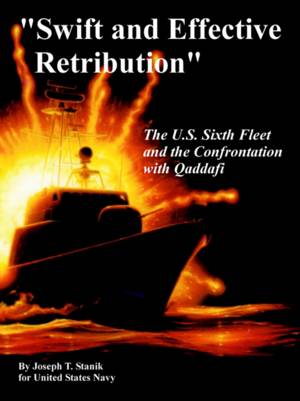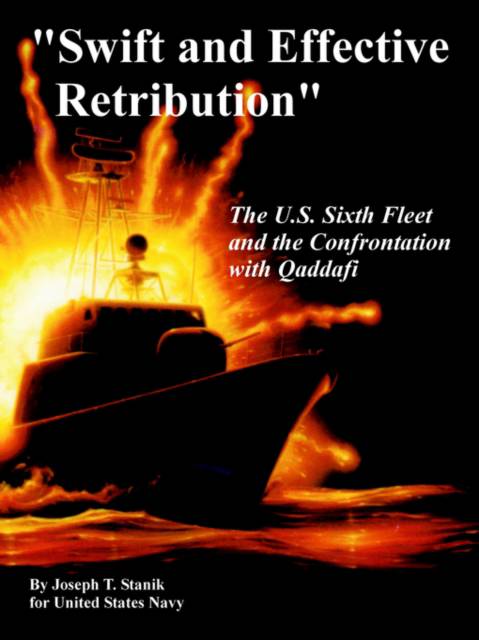
- Afhalen na 1 uur in een winkel met voorraad
- Gratis thuislevering in België vanaf € 30
- Ruim aanbod met 7 miljoen producten
- Afhalen na 1 uur in een winkel met voorraad
- Gratis thuislevering in België vanaf € 30
- Ruim aanbod met 7 miljoen producten
Zoeken
"Swift and Effective Retribution"
The U.S. Sixth Fleet and the Confrontation with Qaddafi
Joseph T Stanik, United States Navy
Paperback | Engels
€ 33,95
+ 67 punten
Omschrijving
The object of this monograph is to highlight for officers and sailors the vital contribution of the Navy to America's national security, economic prosperity and global presence during the contemporary era. Often, the deterrence of nuclear attack on the United States, protection of overseas commerce, support for international alliances and evacuation of American citizens from troubled lands abroad has been accomplished peacefully. At other times, the fleet has been called upon to go "in harm's way" to defend the global interests of the United States. The Navy, for instance, played a significant role in the Korean, Vietnam and Persian Gulf Wars. Less well known, but no less important, the fleet has also been involved during the last half century in several short-term combat actions in support of U.S. foreign policy. The American confrontation with Muammar al-Qaddafi's Libya during the 1980s, the subject of this monograph, was a classic example of how national objectives can often be met through such use of naval force. This method for dealing with international terrorism has been and will be an effective weapon in the president's foreign policy arsenal. The author of this study, Joseph T. Stanik, is admirably equipped to deal with the topic. His education in national security affairs, active service with the fleet in the Mediterranean and Persian Gulf, and experience as a naval historian have served him well in the preparation of this balanced appraisal of the Libya crisis. William S. Dudley Director of Naval History United States Navy
Specificaties
Betrokkenen
- Auteur(s):
- Uitgeverij:
Inhoud
- Aantal bladzijden:
- 64
- Taal:
- Engels
Eigenschappen
- Productcode (EAN):
- 9781410224637
- Verschijningsdatum:
- 28/06/2005
- Uitvoering:
- Paperback
- Formaat:
- Trade paperback (VS)
- Afmetingen:
- 210 mm x 279 mm
- Gewicht:
- 167 g

Alleen bij Standaard Boekhandel
+ 67 punten op je klantenkaart van Standaard Boekhandel
Beoordelingen
We publiceren alleen reviews die voldoen aan de voorwaarden voor reviews. Bekijk onze voorwaarden voor reviews.







